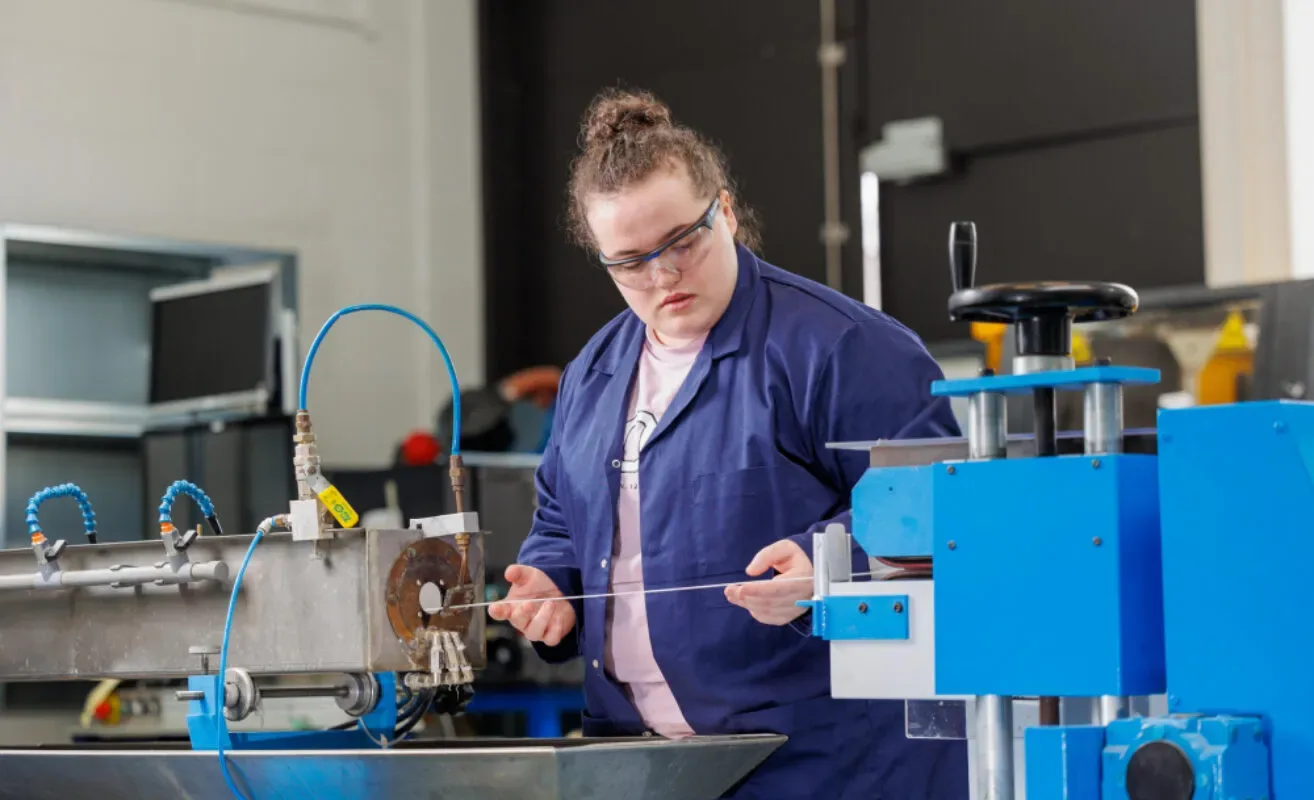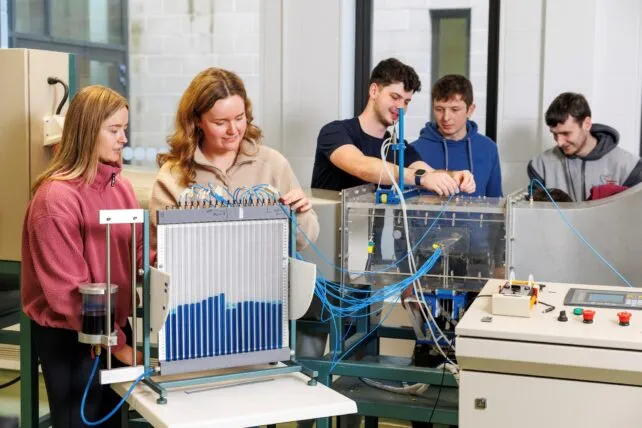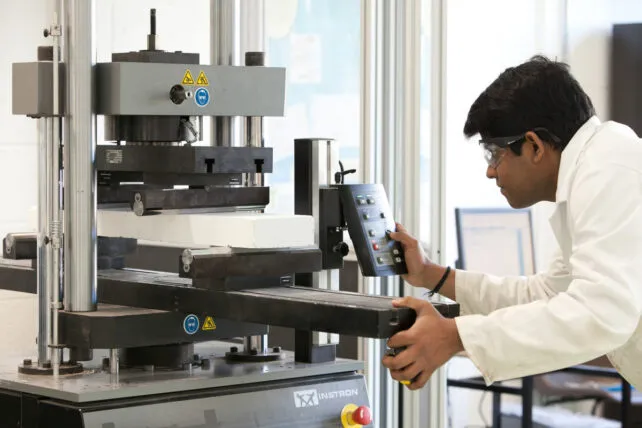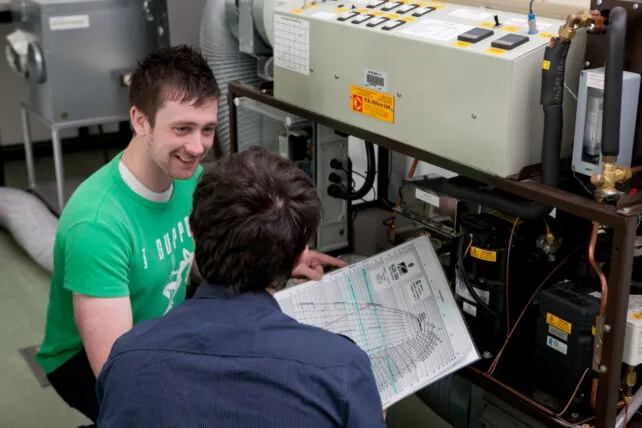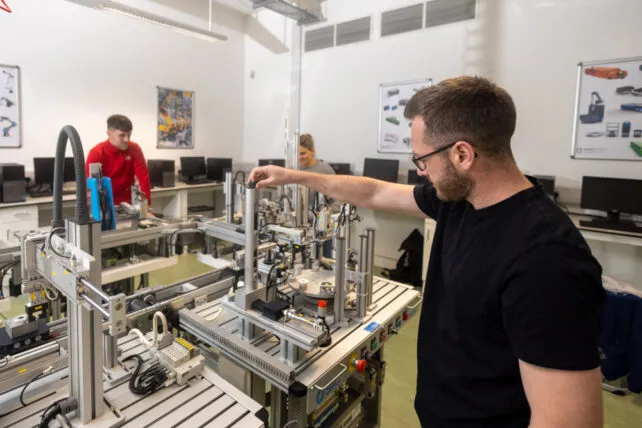On this course you will:
Apply core polymer engineering principles to the design and development of polymer products and medical device components.
Have the opportunity to undertake a six month paid work placement, commencing January of Year 3. The placement will facilitate you in gaining an insight into industrial practices in your area of specialisation (for example polymer processing, validation, risk assessments).
What will I experience?
At TUS Midlands, Engineering education is very practical. Almost 50% of your time will be spent in state-of-the-art laboratories developing your practical engineering skills, and the other 50% will be spent on engineering theory and its application.
While studying on this course students will:
- Visit some of our industrial partners to experience the role of a polymer & mechanical engineer.
- Operate high-end polymer & mechanical technical engineering equipment in our cutting-edge engineering laboratories.
- Develop the ability to critically appraise polymer & mechanical engineering systems, to identify area of potential improvement, to bring about corrective action and where applicable, to suggest and implement an alternative solution.
- Learn about environmental loadings of processes/plants and be committed to its reduction, either in terms of the product, the polymer materials or the process.
- Improve your teamwork and communications skills by working as part of small teams on problem-solving and projects.
- Develop an ethical awareness with regard to the engineering profession and environment.
- Gain valuable work experience in 3rd year by completing a 4 month work placement, and in 4th year an industry-based project.


